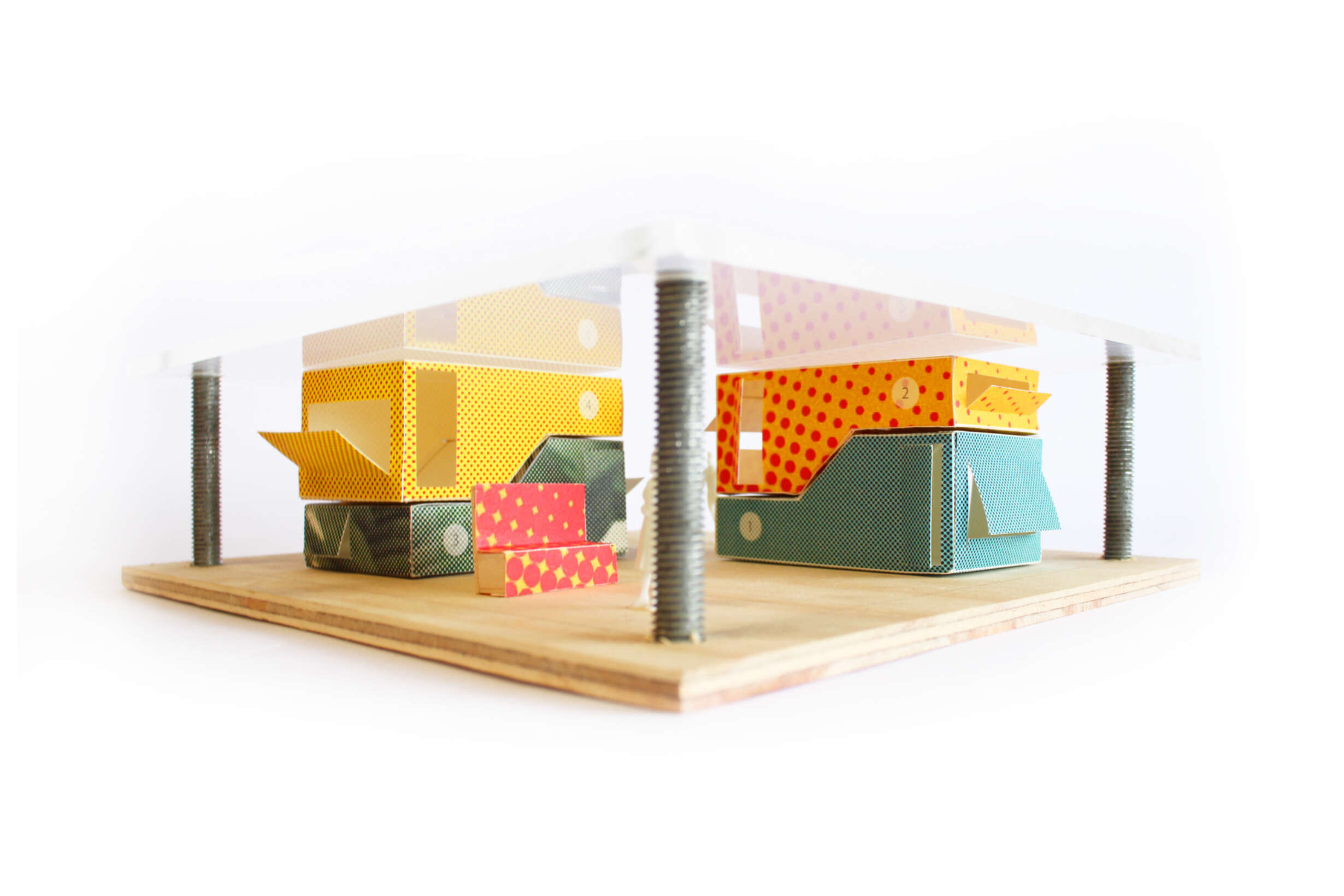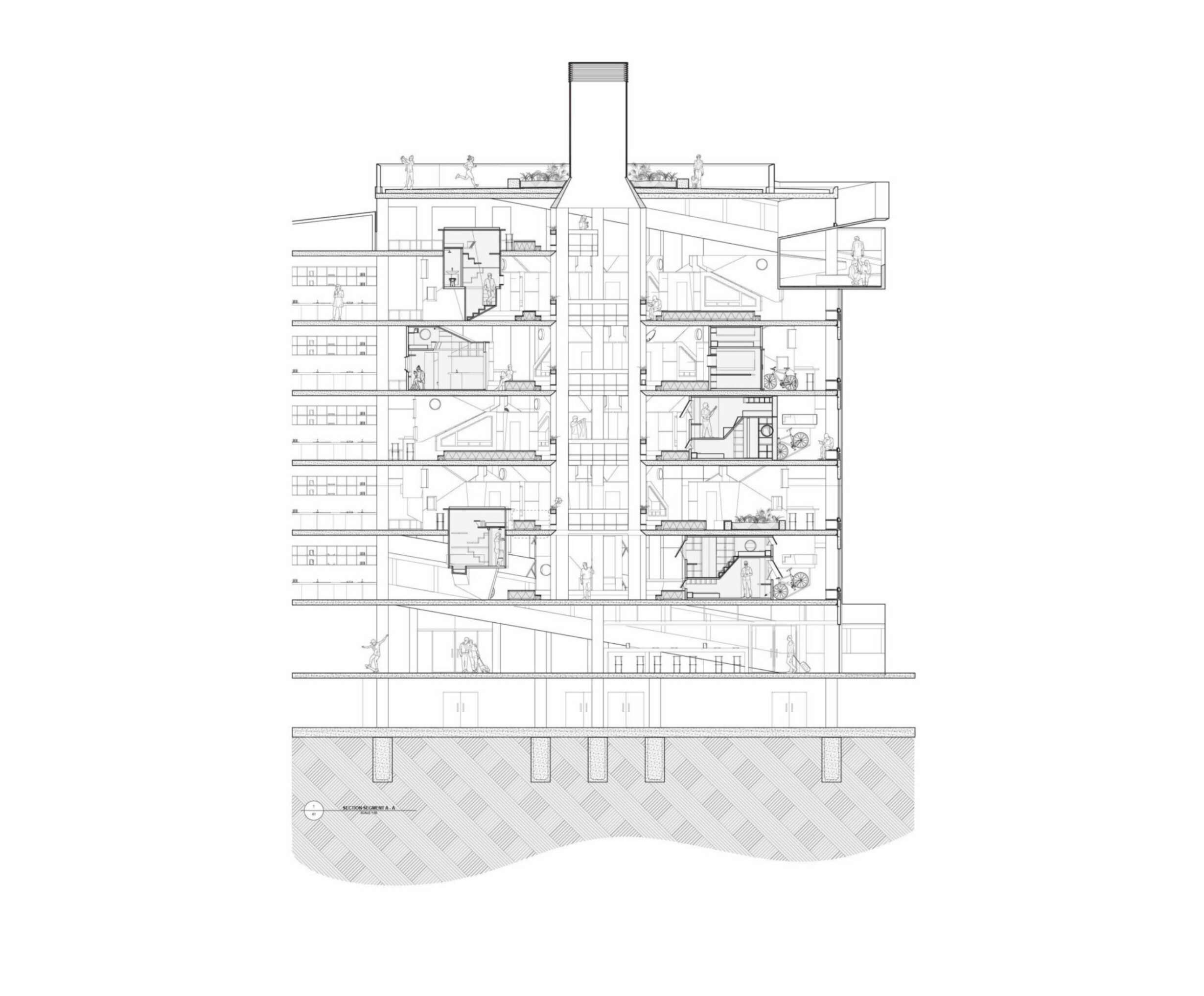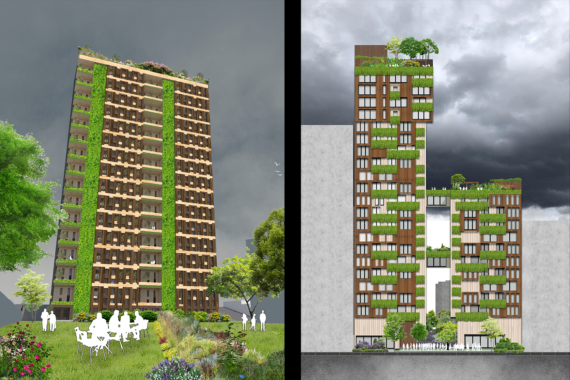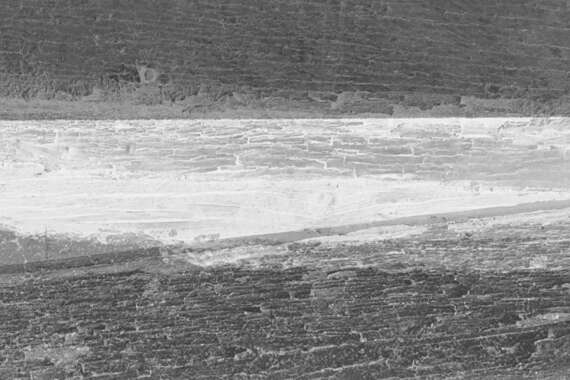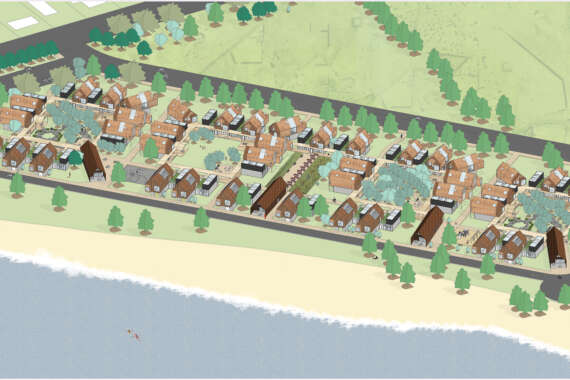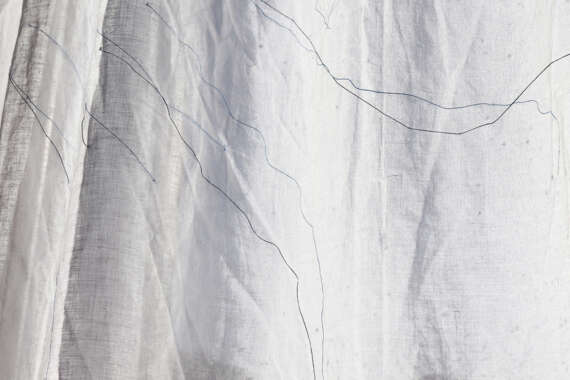Auckland Renter's Club: Not a Flat, Not a Commune
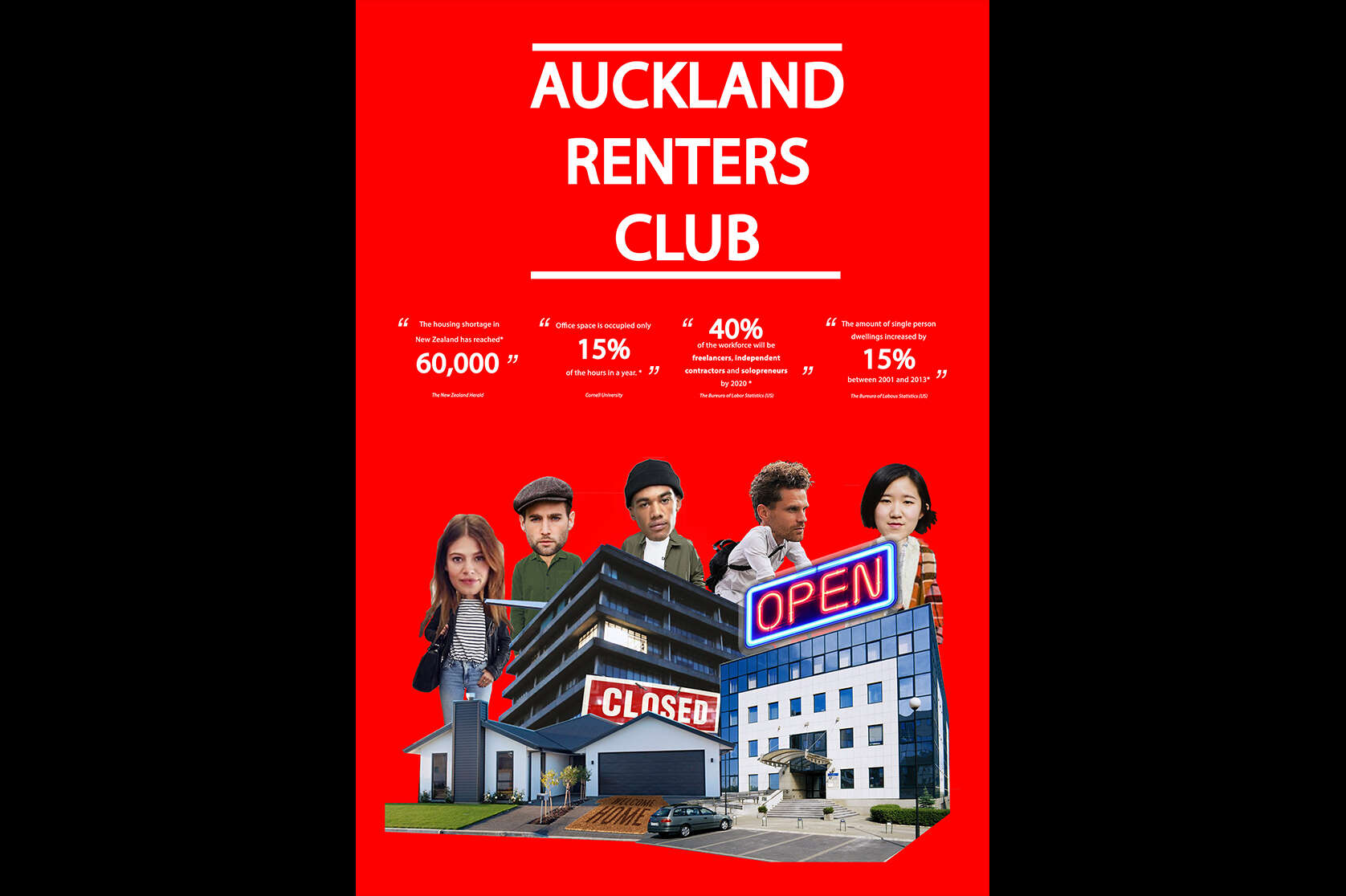
New Zealand is experiencing a housing crisis, and in what is most commonly perceived as an undersupply of built fabric, cities continue their outward sprawl. However little attention is paid to the severe under-utilisation implicit to the status quo that characterises the main centres, the duality of suburban living and urban places of work. This is the prime motivation of this thesis, posing the question: what if rather than perpetuating this outward expansion we explore the opportunities in intensification of programme and occupation within the existing built environment? Given this position of enquiry this thesis seeks to mine both architectural and cultural precedents that present opportunities for alternative typologies of occupation. These precedent studies are found within the research, Underutilisation; The Silent Culprit.
Within the research Contemporary Modes of Occupation, changes in the way societies live and work, currently unattended to by the built environment, are interrogated. This societal change is explored with regards to the possibilities for the alternative typology of occupation it presents, and the issues to which this typology would need to attend. Character narratives are borne out of this research in order to drive the design to attend to this identified societal change.
A Design Exercise; We Live Remix presents a design critique of a contemporary response to the previous two fields of research through contrasting its plan against that of a reworked plan based on the architectural sensibilities drawn out of this thesis. Presented as independent enquires these fields of research frame an architectural proposition that look to subvert the way the building fabric, in particular of inner cities, is occupied.
Auckland Renters Club, the project vehicle of the thesis, is an architectural intervention that adapts an existing building, the archetypal core issue of the thesis: an office park typology within inner city Auckland. The intervention presents an alternative typology of occupation formed from a system with the implication that this could be deployed across a greater context within buildings of a similar disposition.







